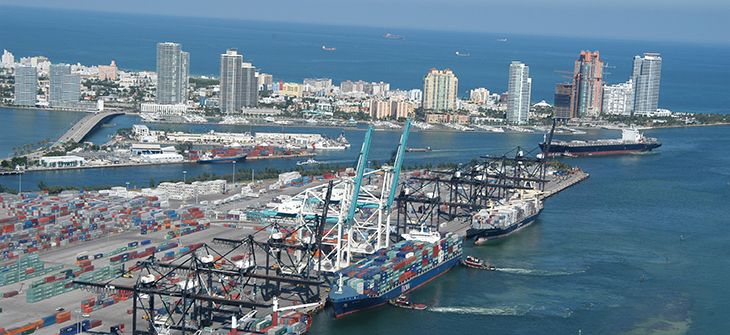- Agents, Importers Say 24-hour Port Operation Breeds Insecurity
The effective implementation of the Federal Government’s Executive Order that the Lagos Ports should run on a 24-hour basis may be marred by security challenges, our correspondent has gathered.
As part of the Executive Order on the ease of doing business at the nation’s seaports, the government had in May 2017 directed the Nigerian Ports Authority to immediately embark on a 24-hour ports operations across the nation.
While signing the Executive Order, the then Acting President, Prof Yemi Osinbajo, had stated that “the Apapa Port shall resume 24-hour operations within 30 days of the issuance of this order and there shall be no touting whatsoever by official or unofficial persons at any port in Nigeria.”
Stakeholders, however, noted that the implementation of the order had not been successful.
In a communiqué issued at the end of the Primetime Reporters’ annual lecture and awards in Lagos recently, they argued that the 24-hour ports operation was not successful due to challenges of non-availability of some key government officials to effectively carry out their duties and responsibilities, and the fact that stakeholders (importers/clearing agents etc.) did not work for 24 hours for security reasons.
They suggested that the government should step up security in the various seaports to encourage 24-hour operation.
The Lagos ports have witnessed a spate of robbery attacks in recent times. On May 19, daredevil sea robbers attempted to rob a bulk carrier at the Lagos anchorage.
There have been similar incidents of attacks on various terminals in the last eight months.
During a stakeholders’ meeting in Lagos in May, the Managing Director, NPA, Ms Hadiza Usman, urged terminal operators to scrutinise their internal security systems.
The agency reiterated that the reason for shipping companies to have holding bays was to control the spate of robbery attacks at the ports.
Usman, who was represented by the Executive Director, Marine and Operations, NPA, Dr Sekonte Davis, said that some of the attacks on vessels discharging at the ports came from miscreants occupying shanties and illegal structures around the ports.
She, however, gave an assurance that the agency was collaborating with the Nigerian Navy to provide security for vessels.
The NPA had last year entered into collaboration with the Lagos State Security Trust Fund to address security challenges in the state.
While on a courtesy visit to the LSSTF office in Alausa, Ikeja, in July, Usman said the collaboration would be of immense economic benefits to the state and the country at large.
“I also assure you of our commitment to collaborate with the fund in areas where the support is necessary to improve on the challenge of insecurity and traffic management around the Apapa Port,” she had stated.
The Executive Secretary, LSSTF, Dr Abdurrazaq Balogun, stated, “As we all know, the well-being and security of the people of a state is the responsibility of the state government, and that is why the Lagos State Government has made giant strides to see that this is put in place. Today, the state government is the fund’s biggest donor.”


 Naira4 weeks ago
Naira4 weeks ago
 Naira3 weeks ago
Naira3 weeks ago


 Naira4 weeks ago
Naira4 weeks ago




 Naira3 weeks ago
Naira3 weeks ago
 Commodities4 weeks ago
Commodities4 weeks ago


 Sport Business4 weeks ago
Sport Business4 weeks ago


 News3 weeks ago
News3 weeks ago


 Banking Sector4 weeks ago
Banking Sector4 weeks ago























